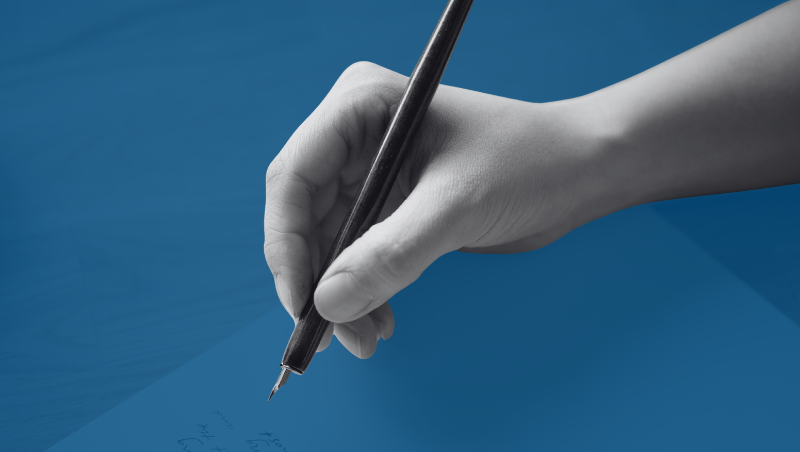Edward de Bono, an inspiring Maltese physician, said “There is no doubt that creativity is the most important human resource of all.” This means that creativity is the most valuable ability or skill that humans possess. It allows us to solve problems, invent new things, express ourselves, and drive progress in all areas of our lives.
In the Philippines, the Intellectual Property Office (IPO) is a government agency responsible for the administration and enforcement of intellectual property laws. However, not all creations are automatically protected. To protect your works, copyright registration is necessary, but optional.
Copyright registration is a crucial step in protecting your intellectual property and ensuring you receive due credit and compensation for your creative works. In this guide, you will discover the requirements, process, and significance of copyright registration in the Philippines.
What is Copyright?

Copyright (©) is a legal right granted to the creators or authors of original works, providing them with exclusive rights to control the use and distribution of their creations. In the Philippines, copyright registration legally secures and protects the rights of the creators or authors of their original creations, including literary, artistic, and musical works. It also serves as an evidence of ownership in case of infringement or legal disputes.
What Works are Not Protected by Copyright?
According to Section 175 and 176 of the Intellectual Property Code, the following works are not protected by copyright:
- Any idea, procedure, system, method or operation, concept, principle, discovery or mere data as such, even if they are expressed, explained, illustrated or embodied in a work;
- News of the day and other miscellaneous facts having the character of mere items of press information;
- Any official text of a legislative, administrative or legal nature, as well as any official translation thereof; and
- Any work of the Philippine government.
What are the Requirements for Copyright Registration?
The following documents must be submitted when applying for copyright registration:
- Duly accomplished and signed BCRR Form 2025-1
- Copy of a government issued ID of copyright owner
- Copy of copyright owner’s spouse or children heirs’ Marriage/Birth Certificate issued by the Philippine Statistics Authority (PSA), if applicable
- Copy of Death Certificate and/or Last Will and Testament of copyright owner, or any document evidencing designation as heir, if applicable
- Copy of the work in any of the following applicable format:
- Electronic copy of photo of the work in JPG or PDF format
- Photographs of all sides of the work, for 3-Dimensional work
- Electronic copy of the music sheet, labanotation, audiovisual or sound recording, broadcast, or audiovisual recording in MP3, WAV, MPEG-4, AVI, or other formats as may be prescribed; or
- Manually-coded source codes in PDF or text format only. A reasonable amount of redactions on submitted codes may be made to protect trade secrets. An executable copy of the computer program is not acceptable.
How to Process a Copyright Registration?
To process a copyright registration, you must follow this procedure:

Fill Out the Application Form
Download and fill out the BCRR Copyright Registry Enrollment Form on the official website of the Intellectual Property Office (IPO). For applications with co-authors, ensure to fill out and submit the Supplement Form along with the Registration Form and other requirements.
Submission of Requirements
Submit the required documents to copyright_registration@ipophil.gov.ph. Note that the email subject is “Request for Copyright Registration_(Your Name)”. E.g. Request for Copyright Registration_Maria Santos.
Pay the Fees Online
Once the form and other requirements are submitted, a Statement of Account (SOA) will be sent to you via email indicating your fees due within a period to settle payment. An email will also be sent confirming receipt of payment along with a copy of the IPOPHL electronic receipt.
Submission of eOR
Submit a copy of the e-Official Receipt (eOR) to the BCRR via email.
Issuance of eCertificate
Upon confirmation of payment, the BCRR will issue an eCertificate of Copyright of Registration and Deposit (eCRD). The certificate will be sent to you through your email.
How Long Does a Copyrighted Work Protected?
In the case of works of co-authors, the economic rights are protected during the life of the last surviving author and for fifty (50) years after their death. While anonymous or pseudonymous works are protected for fifty (50) years from the date on which the work was first lawfully published.
For works of applied art, the protection should be for twenty-five (25) years from the date of making. While photographic works are protected for fifty (50) years from publication of the work. If unpublished, the protection is for fifty (50) years from the date of making.
Additionally, audio-visual works including those produced by process analogous to photography or any process for making audio-visual recordings are protected for fifty (50) years from the date of publication. If unpublished, the protection is for fifty (50) years from the date of making.
In case of the death of the creator or author, his/her work is protected for fifty (50) years and is not assigned or subject to license. If he/she does not name anyone to enforce the copyright after his/her death, the responsibility goes to his/her heirs. If there are no heirs, the Director of the National Library will then be responsible.
What are the Limitations on Copyright?
Under Section 184 of the IP Code, the following acts are not considered copyright infringement:
- Reciting or performing a work for free and in private, or for a charitable or religious organization;
- Quoting from a published work and the source and author are mentioned;
- Reproducing or communicating articles on current topics to the public through mass media;
- Reproducing and communicating works as part of current event reports;
- Using a work for teaching, as long as the source and author’ name are mentioned;
- Recording a broadcast for educational purposes, provided that the source and name of the author are mentioned;
- Creating ephemeral recordings by broadcasting organizations for their broadcasts;
- Use by the government, national library, or educational institutions for the public interest;
- Public performance by a non-profit club or institution, provided that no fee is charged;
- Public display of the original or copy of a published or sold work; and
- Using a work for legal proceedings or legal advice.
What are the Benefits of Copyright Registration?
Registering your work gives you the following benefits as the owner or author:

Legal Protection
Copyright protects creative works which help establish ownership and prevent unauthorized use of the intellectual property. By copyrighting your work, it offers legal protection and makes it easier to enforce your rights against infringers. This protection is essential in court cases, as it serves as a proof that you own the copyrighted work legally.
Exclusive Rights
Copyright grants you exclusive rights to reproduce, distribute, display, perform, and create derivative works based on your original creation.
Commercial Opportunities
With copyright protection, you can confidently license or sell your work, knowing that your rights are secure. This can open up various revenue streams and allow you to capitalize on the commercial potential of your creative output.
Legal Remedies
In the case of copyright infringement, registration enables you to take legal action against those who have used your work without authorization. You may be able to seek damages, injunctions, and other remedies to compensate you for the unauthorized use and protect your creative work. In this case, it is crucial to consult with a lawyer to better protect your rights and interests.
Public Record
Copyright registration creates a public record of your ownership, making it easier for others to identify you as the rightful owner and seek permission for using your work. This can lead to collaborations, licensing agreements, and other opportunities that may not have been possible without the public record of your copyright. It can also be crucial in proving your rights and deterring potential infringers.
Need further information and assistance regarding Copyright Registration? Talk to our team at Duran & Duran-Schulze Law in BGC, Metro Manila, Philippines to know more about the requirements and process. Call us today at (+632) 8478 5826 or +63 917 194 0482, or send an email to info@duranschulze.com for more information.







